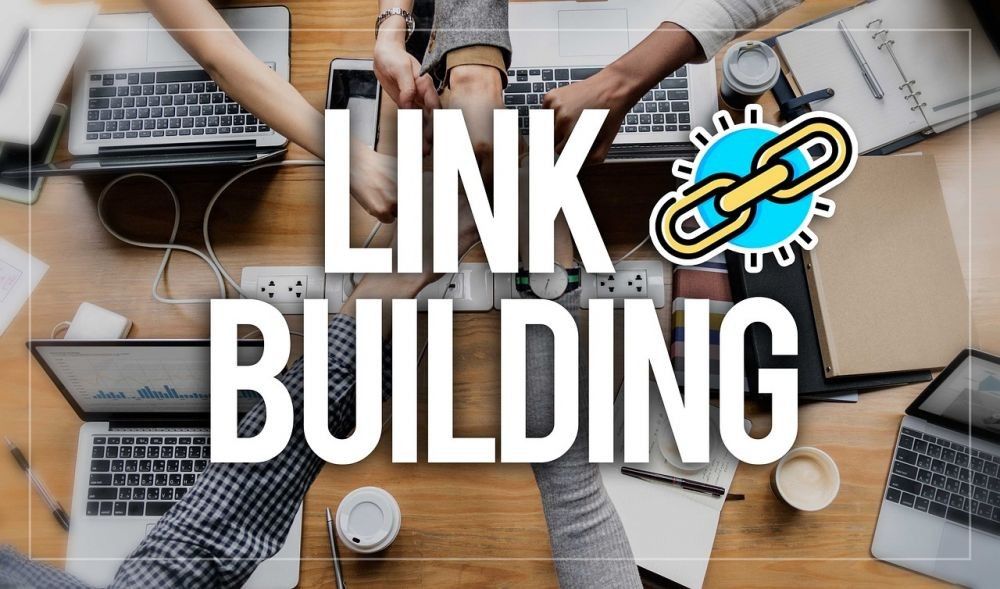Buying links is an easy way to get backlinks, that is, when other websites refer to your website. In this article, we’ll walk you through everything you need to know to implement a paid link strategy.
Initially, consider whether purchasing links aligns with your strategy. There’s debate surrounding buying links since it contradicts Google’s guidelines.
So why do companies do it?
Well, it works and because:
- It is cost effective.
- It is quick to get the links.
- It is guaranteed to get you links.
If you’re uncomfortable with buying links, the alternative is to focus on organic linking strategies. These involve earning links naturally, without any exchange or payment. While they may take more time and effort, they have the advantage of being more sustainable and aligned with Google’s guidelines. You can learn more about organic link building here.
In this guide, we will focus solely on purchased links and what you need to consider when you want to get into link building, above all:
- How important links are in 2024.
- How to go ahead and buy links.
- How to choose which sites to buy from.
- How many links do you need?
Dive in and explore!
Table of Contents
Is link building necessary in 2024?
Links are still among the most important ranking factors for Google and other search engines. The stronger your website’s link profile, the better it will rank in search results.
The effectiveness of backlinks is confirmed both in Google’s own documentation and through tests on real websites, so-called case studies.
The truth is that without links, you will never reach the top of Google, and that’s where the traffic is.
Klikko’s Link Building Case Study
Klikko has conducted the largest backlink case study in the Nordics, revealing both the need for links and the most effective links.
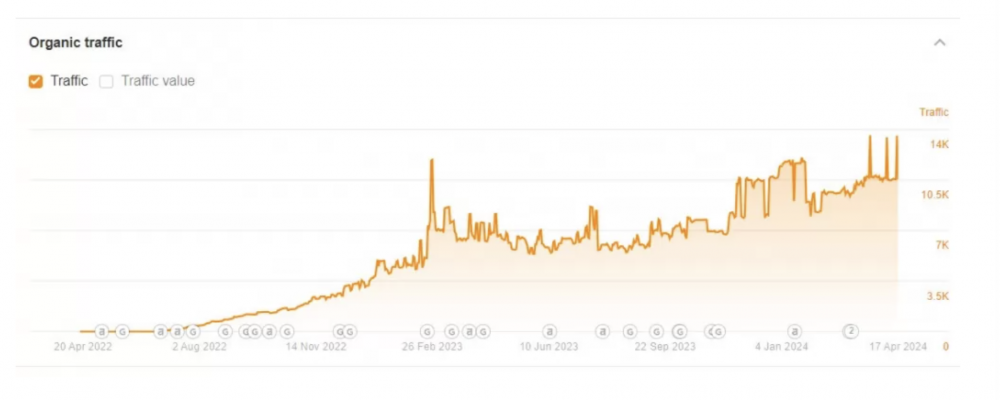
Source: Data from Ahrefs from one of the sites we tested
In our Case Study, we built four equivalent websites from scratch with the same premise:
- Brand new domains.
- Without backlinks.
- Exact keywords, but targeting different cities.
- Similar content.
Then we let time pass to see how far the sites could go without any backlinks. We followed this up by building links using four methods to determine which would work best.
Download the case study for free below and see the surprising results.
Take part in our Case study here! [Button]
The study found that links were crucial in boosting the sites to the top.
You can take your website on the same journey, and it’s beneficial to follow the tips below.
Buy links directly or via a reseller
There are two different methods you can use when buying links. Either you find site owners yourself and buy directly from them, or you turn to a reseller who has access to a larger set of sites to choose from.
Whichever method you use, it’s important that you do proper research on who you’re buying from. What is the pricing? How long are the contracts? How long will the links be live/dofollow? What is the quality of the links?
Search Royals – Transparent link building
Our Search Royals tool gives you an easy overview of over 55,000 unique domains from which you can buy links. You can filter by country, category, price, domain rating, and estimated traffic. This makes it easy to handpick the sites that suit you the best.

Source: Search Royals
You can also add your competitors and see which sites they have bought from, so you can get the same links and add some extra.
We always guarantee the links will be live and dofollow for a minimum of 2 years. The tool also allows you to see the status of your links.
When you get a VIP account, you also get access to our own network of niche sites, which is the most successful strategy in the Case Study we mentioned above.
When you buy links through our marketplace, you decide how much you want to get involved. You can decide the anchor texts and write articles for the linking pages yourself, or you can leave that task to us. Then you will receive:
- Relevant articles
- Keyword-optimized anchor texts
- Customized link strategy from one of our SEO Experts
You call the shots on the support you require, and we will craft a personalized solution just for you!
Relevant websites
One of the most important factors to consider if you are handpicking websites yourself is that they should be relevant to your site subject-wise. The closer they are to each other, the better.
For professionals in the construction industry, it’s beneficial to prioritize links from digital magazines and DIY websites. Conversely, obtaining links from websites focused on body care isn’t relevant to that sector’s SEO strategy.
Find relevant sites on your own
You can search for websites and blogs in your sector yourself by doing a search operator search on Google: “Your keyword inurl:blog”, which will bring up blogs that address your keyword:
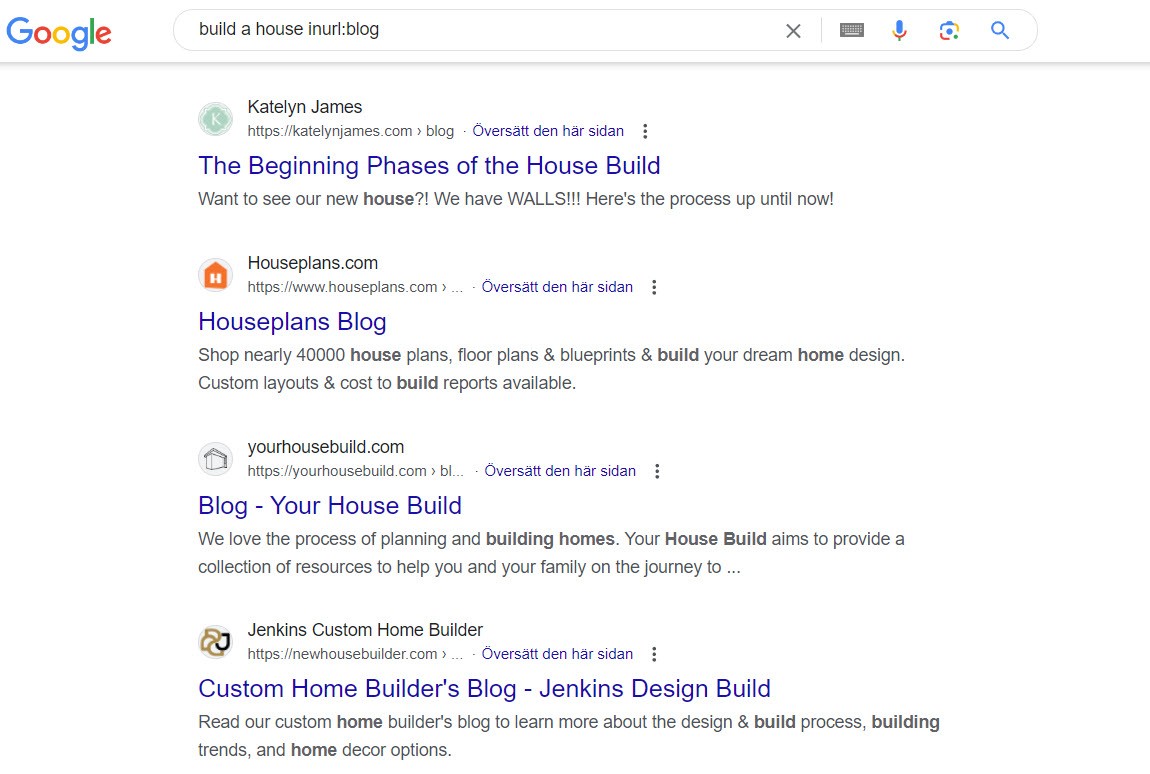
You can then contact the blog owners and ask if you can buy a link from their blog.
This is a time-consuming endeavor, where you need to:
- Locate sites that actually want to sell links to you.
- Negotiate on price.
- Negotiate link lifetime.
- Check that the links are live.
Or you can make life easier for yourself by using an SEO tool, like Search Royals, that takes care of all this for you.
Find the right link sites with Search Royals
With Search Royals, you can easily filter out sites within the categories that are relevant to you.

You can also see which sites your competitors buy links from and use this data to help you.

If you need to buy links from international sites, you can filter which countries you are interested in by filtering “Countries”

Avoid buying links from the same pages (duplicate links)
When you reach higher volumes of backlinks, it can be easy to accidentally buy links from the same domain multiple times. You want to avoid this, as it is more valuable to have links from unique domains than multiple links from the same domain.
You can use the “Avoid duplicate” feature in Search Royals to avoid this common mistake:

Vary the anchor texts
When you buy a link, it’s important that the anchor text (the text in which the link is embedded) is optimized. Google uses anchor text as a signal of relevance to the receiving page.
With the anchor text “best milkshake recipes,” Google expects the page to be about milkshake recipes. If the context is right, the relevance of the receiving page is reinforced for searches like “milkshake recipes” and so on. However, the link will not impact Google’s ranking if the receiving page is about car parts.
Now, you might think it’s just a matter of buying links with anchor texts that match your pages’ keywords, but it’s not quite that simple. Having over-optimized anchor texts is a violation of Google’s spam policies. Therefore, it is recommended to vary the anchor texts between the following types:
- Matching anchor texts: The exact keyword the page wants to rank by.
- Partial matching anchor text: A variation or synonym for the page’s main keyword.
- Generic anchor text: “Read more,” “Click here,” and similar texts.
- Branded anchor text: Anchor text that includes your company name or brand.
- Naked anchor text: The URL itself is used as anchor text, for example, https://klikkoseo.se/
There is no magic number for how anchor texts should be spread out, but a commonly recommended distribution is:
- 50 percent: Branded/Bare anchor text
- 15 percent: Generic anchor text
- 25 percent: Partially matching anchor text
- 10%: Exact match anchor text
This simplified solution is far from the actual truth of what works in practice. If you want to dive deep and look at what distribution of anchor texts Google prefers for your keyword, you can easily analyze it using Ahrefs.
Take the top results for your search and put the URLs into the ahrefs “Anchors” tool to see what truly brings results:
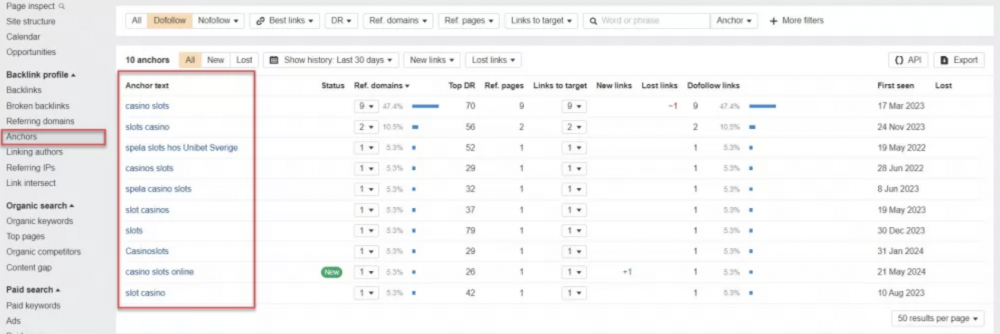
As we can see from the search “casino slots,” the top results with “slots” and “casino” in almost all of their anchor texts, and HALF of all links have an exact match anchor text.
If you lack the time to analyze and create diverse anchor texts yourself, we’re here to assist. We can provide suggestions when it’s time to purchase links.
How many links are necessary?
As with most aspects of SEO, this is not an exact science, but you can gain a good understanding by analyzing your competitors’ links. You want to know how strong their domain is as a whole and their landing page, which you are competing with.
Domain strength is often represented as an arbitrary value determined by the quantity and quality of links the entire site receives. We at Klikko use DR (Domain Rating), a term coined by Ahrefs. The theory is that a high DR helps all landing pages on the website rank higher on Google.
Fun fact: SEO specialists have long argued that the strength of the website as a whole is an important metric for Google, while Google’s own representatives have stubbornly argued the opposite. In connection with the Google leak in May 2024, it turned out that the SEO community had been right all along, and Google had deliberately withheld the truth about this.
The strength of a landing page is determined by the links pointing to the specific URL you want to rank on Google and the URLs it competes with.
The overall competitiveness of a page is a combination of these two values, and no one knows exactly how the interaction works.
We can see that pages with extremely high DR do not need links but automatically reach top positions.
Conducting a link analysis
Conducting a link analysis is somewhat of an advanced guessing game, but it is the most accurate method. To complete an analysis, you’ll need an SEO tool, such as our Eye10 tool or Ahrefs.
You then look at the top results on Google and their DR as well as the number of links to the landing page, and try to draw conclusions from that.
The provided example of the search “solar panels” and the top three results:
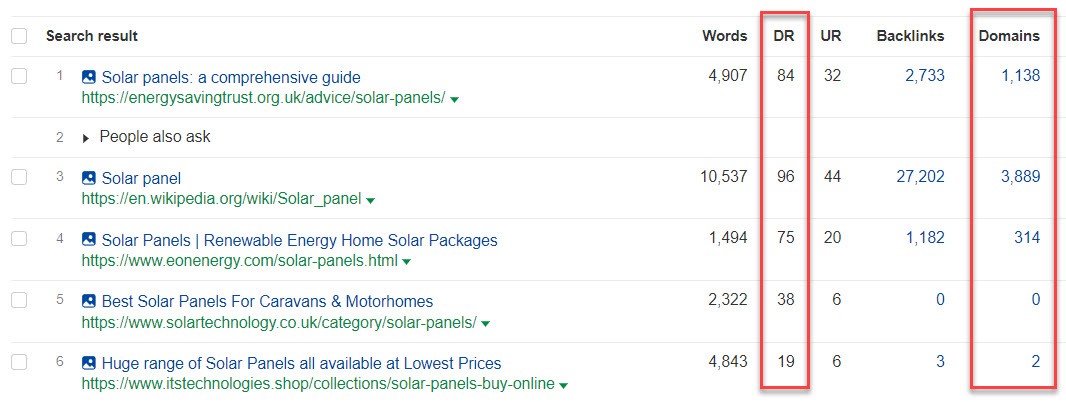
Based on this result, breaking into positions 5 or 6 in search results would be manageable for any site. However, achieving higher positions would necessitate a substantial number of high-quality backlinks. This challenge is underscored by the fact that positions 1 and 3 are held by sites with significant domain authority and backlink profiles. For instance, position 1 boasts 2.733 backlinks with a Domain Rating (DR) of 84, whereas position 3 has an impressive 27.202 backlinks and a DR of 96.
These metrics indicate that surpassing these top positions would require a considerable investment in building and acquiring authoritative backlinks. If we wanted to compete against the examples above, we would either need a very strong domain or a large number of links to our landing page for the keyword.
Content quality
Links are not the only thing that matters when it comes to rankings, you also need to have content that responds to users’ queries. No matter how many links you have, you will never reach the top if visitors leave your page as soon as they click on it.
A quick tip is to look at the results that are currently in the top 3 for the search and what their pages look like. We recommend you read our full guide on keyword optimization here. You will find more concrete ideas for improving your site for Google and its users there.
Can I obtain free links?
Yes, there are a number of ways to get free links. For example, you can sign up your website to digital directories that list companies in your industry. The arrangements for getting listed in web directories can vary:
- Some are completely free
- Some require you to pay to be listed
- Some offer free basic listings, which can be upgraded with more attractive graphics if you pay.
The value of being listed in directories is disputed. Google spokesperson John Mueller said in 2017 that being listed in web directories is generally not helpful.
Most directories also use nofollow on their external links, which means that they do not send any link juice. That is, Google does not value the link.
Generally speaking, free links are of relatively low value in themselves, especially if they are nofollow. However, they should not be disregarded for your SEO strategy as a whole, as they help to create a varied link profile for the website.
A popular belief in link building is that a natural link profile contains a mix of follow and nofollow links. If your preferred linking strategy is to buy links, it can be helpful to complement the defollow links you buy with nofollow links you obtain for free.
But don’t exclusively focus on the SEO value of a link. A nofollow link can drive traffic to your website. This is especially valuable if they are placed on well-visited web pages and if the context of the link is relevant.
The risks and rewards of buying links
Google is ambiguous about the possible consequences of bought links, or Link Spam, as they call it. They identify it when algorithms or individuals report suspicious attempts to manipulate rankings through artificial backlinks.
Artificial backlinks can be both the result of someone buying backlinks for themselves and a competitor building suspicious links against you in an attempt to penalize you. And how will Google know the difference between the two?
On the one hand, Google says violating its spam policies can lead to downranking search results through manual actions. On the other hand, they say that as a website owner, you can ignore toxic backlinks if you detect them—in other words, links that are built to hurt you.
We can see tendencies that Google is heading in the direction of ignoring rather than penalizing links that they think have no value, both in their statements and in their seeming phasing out of the Disavow Tool.
The dismantling of the Disavow Tool
If you are affected by a manual action for spammy links, you can currently use the Disavow Tool. It tells the search engine which links it should ignore.
After you disavow spammy links, you tell Google that you have flagged which links the search engine should ignore and that you want them to withdraw the manual action. All along, Google has been very keen to tell you that the tool should be used with caution so that you don’t disavow links that are actually beneficial.
Nowadays, there’s a shift towards relying on algorithms to identify manipulative links and recommending that search engines simply disregard them.
In 2023, Bing Webmaster Tools started removing its equivalent of the Disavow Tool, and Google has communicated that this is the direction they are heading towards as well. The idea is for the algorithms to figure out which links are good and which are not so that site owners can focus on creating good content instead of scrutinizing their backlinks.
In other words, if the algorithm detects unnatural links on a page, it disregards the link authority from purchased links rather than penalizing the site.
How to start with link building
If you’ve read this far, you’ll have learned that there are a few different ways to go about it. You can do it all yourself by:
- Doing a link analysis of your competitors.
- Creating a plan for how many links you need to different pages on your site.
- Identifying sites that talk about your business area.
- Contact site owners and ask if you can buy a link from their site.
- Create a monitoring system to see the links you bought live and set to dofollow.
You can also use a tool, such as Search Royals, which eliminates the need to map sites, contact site owners, and monitor link status. Instead, you simply handpick the relevant sites, order them, and wait for delivery.
The last option is to let us do all the work, including link analysis, strategy, and implementation. You’ll get your own Customer Success Manager to ensure your site gets the links it needs to reach the top.
Contact us for a complimentary consultation to explore how we can support you!

